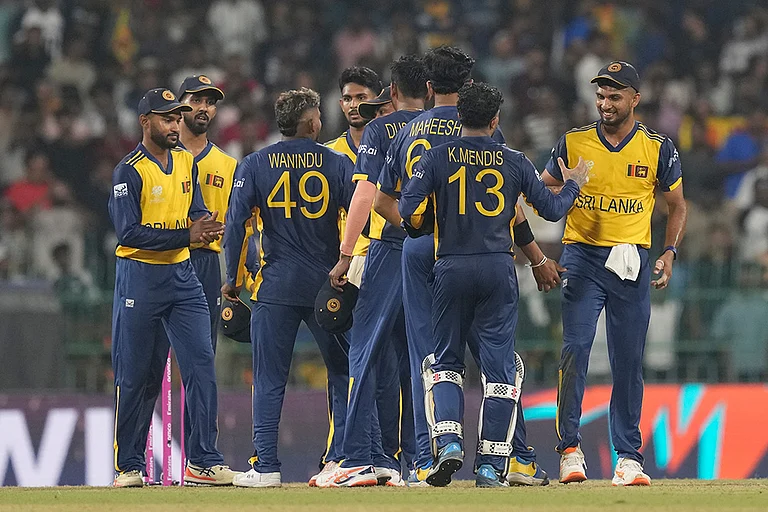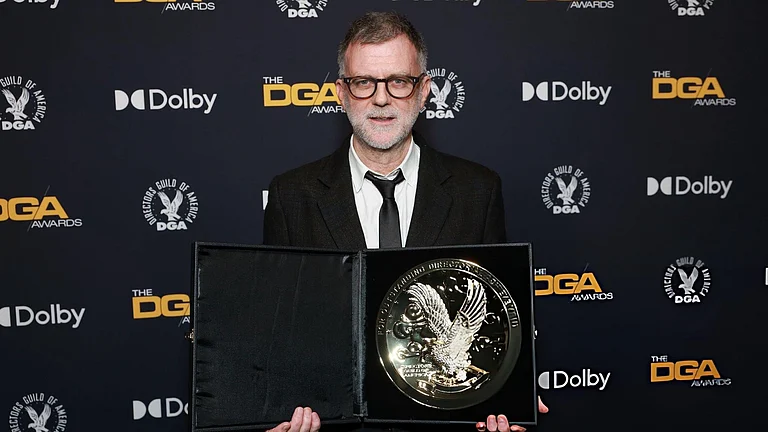Question : My question is to both Prime Ministers. The holiest priest of the Sikh religion has issued an edict against same sex marriage. So, to our Prime Minister, I would like to ask how you think this would impact on support for your party among an important constituency and I would like to ask the Indian Prime Minister that as a Sikh yourself are you concerned at all about Canada’s bid to legalize same sex marriage?
Manmohan Singh: You forgive me. I have not understood your question.
Question: You know that Canada is trying to legalize, to make legal, the marriage between two people of the same sex, so a man with a man and a woman with a woman, and I know that your holy priest has issued an edict against it recently.
Manmohan Singh: Well, I do not think it is proper for me to comment on internal Canadian affairs, but certainly, such a thing in our country would not have, I think, wide appreciation.
Paul Martin: Let me just say first of all that this is now the law of the land in seven Canadian provinces and one Canadian territory. This is a decision taken by our courts based on our Charter of Rights. This is a question of equality and the question that would ultimately arise is whether we will use the notwithstanding clause to take away that particularly right and I have made it clear that I would not so.
So, let me simply give you the background. The first is that what the courts have determined unequivocally is freedom of religion. This is a question of civil marriage, not a religious marriage. No church, no temple, no synagogue, no mosque will be forced to provide a marriage in any other way than those which are accepted by its own beliefs. And what the courts have said is that in fact the freedom of religion indicates that the definition of marriage will be determined by that particular religion.
At the same time, I would point out that we are a country of ethnic and religious minorities. We are a country of minorities. The purpose of the Charter of Rights is to protect minorities – to protect them against the oppression of the majority. That is the reason that you have a Charter and I believe that one of the reasons that Canada has been so successful in bringing together people from all around the world is that in fact we do understand religious freedom, we do understand the necessity for minorities to be protected so that in fact they can pursue their own faith and that they can pursue their own way.
One of the most damaging things, I believe, to the Canadian concept of equality and respect for each other would be in fact if we allow the Charter to be attacked. This is an issue of rights.
Question : Did the Canadian government offer assistance with respect to the tsunami? And what was the Indian government’s response?
Manmohan Singh: We discussed the role of international cooperation in dealing with disasters like the one we have experienced. We have agreed that in developing an early warning system our two countries will cooperate with other like-minded countries.
Paul Martin: Absolutely, there is a going to be a brainstorming session, I believe on January 21 and 22. There is a leading Canadian expert who is here on tsunamis and who will be sitting down with the other experts from the Indian government. Canada wants to participate along with India, recognizing the absolute necessity of having an early warning system - an early warning system obviously in this part of the world. But we in Canada should not think that we are exempt from the threats of tsunamis and we really do believe that in fact this has to be extended.
Question : Also with regards to the relief operations. Was there an offer with regard to the relief operations?
Paul Martin: Canada offered to all the affected nations our help and obviously (by) a number of countries that offer has been taken up. What I think is so impressive about India is that not only India has been able to deal with its own situation but in fact the Indian military and navy has been able to extend its help to its neighbours, primarily Indonesia and Sri Lanka.
Question: My question is addressed to the Prime Minister of Canada. The Joint Statement issued just now refers to the strategic collaboration in selected areas of science and industrial technologies. Would this collaboration programme also include cooperation in the civilian nuclear field? In the changed circumstances would Canada like to resume cooperation in the civilian nuclear side?
Paul Martin: The fact is that it is my understanding that in fact within a matter of hours after the tsunami the Canadian AECL or Atomic Energy Cooperation contacted the Indian government to say that if there was anything that we could do to help, we were there and we wanted to participate, we wanted to help. We have a longstanding relationship with India, great history with India, and yet there have been some differences of opinion. I am sure that over time we can work this out and certainly at the time of this great tragedy we came forth and we said if there is anything we can do, we want to help.

























